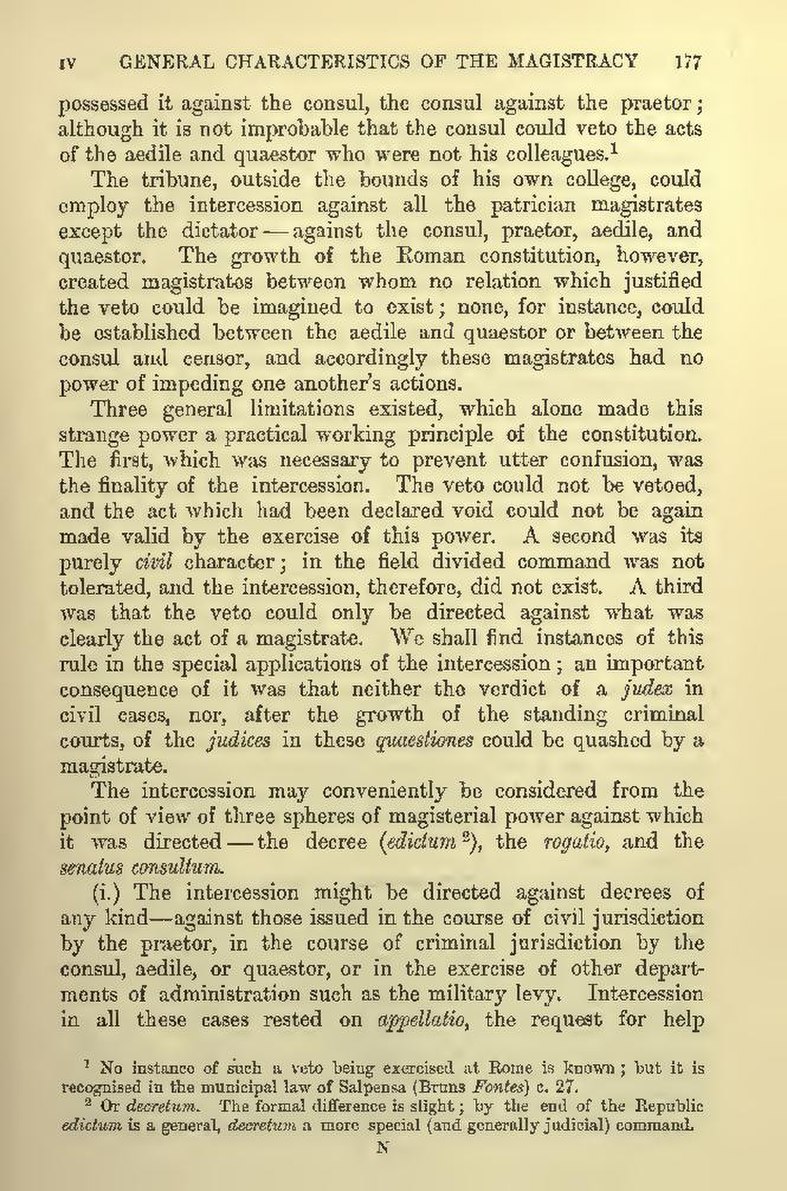possessed it against the consul, the consul against the praetor; although it is not improbable that the consul could veto the acts of the aedile and quaestor who were not his colleagues.[1]
The tribune, outside the bounds of his own college, could employ the intercession against all the patrician magistrates except the dictator—against the consul, praetor, aedile, and quaestor. The growth of the Roman constitution, however, created magistrates between whom no relation which justified the veto could be imagined to exist; none, for instance, could be established between the aedile and quaestor or between the consul and censor, and accordingly these magistrates had no power of impeding one another's actions.
Three general limitations existed, which alone made this strange power a practical working principle of the constitution. The first, which was necessary to prevent utter confusion, was the finality of the intercession. The veto could not be vetoed, and the act which had been declared void could not be again made valid by the exercise of this power. A second was its purely civil character; in the field divided command was not tolerated, and the intercession, therefore, did not exist. A third was that the veto could only be directed against what was clearly the act of a magistrate. We shall find instances of this rule in the special applications of the intercession; an important consequence of it was that neither the verdict of a judex in civil cases, nor, after the growth of the standing criminal courts, of the judices in these quaestiones could be quashed by a magistrate.
The intercession may conveniently be considered from the point of view of three spheres of magisterial power against which it was directed—the decree (edictum[2]), the rogatio, and the senatus consultum.
(i.) The intercession might be directed against decrees of any kind—against those issued in the course of civil jurisdiction by the praetor, in the course of criminal jurisdiction by the consul, aedile, or quaestor, or in the exercise of other departments of administration such as the military levy. Intercession in all these cases rested on appellatio, the request for help
